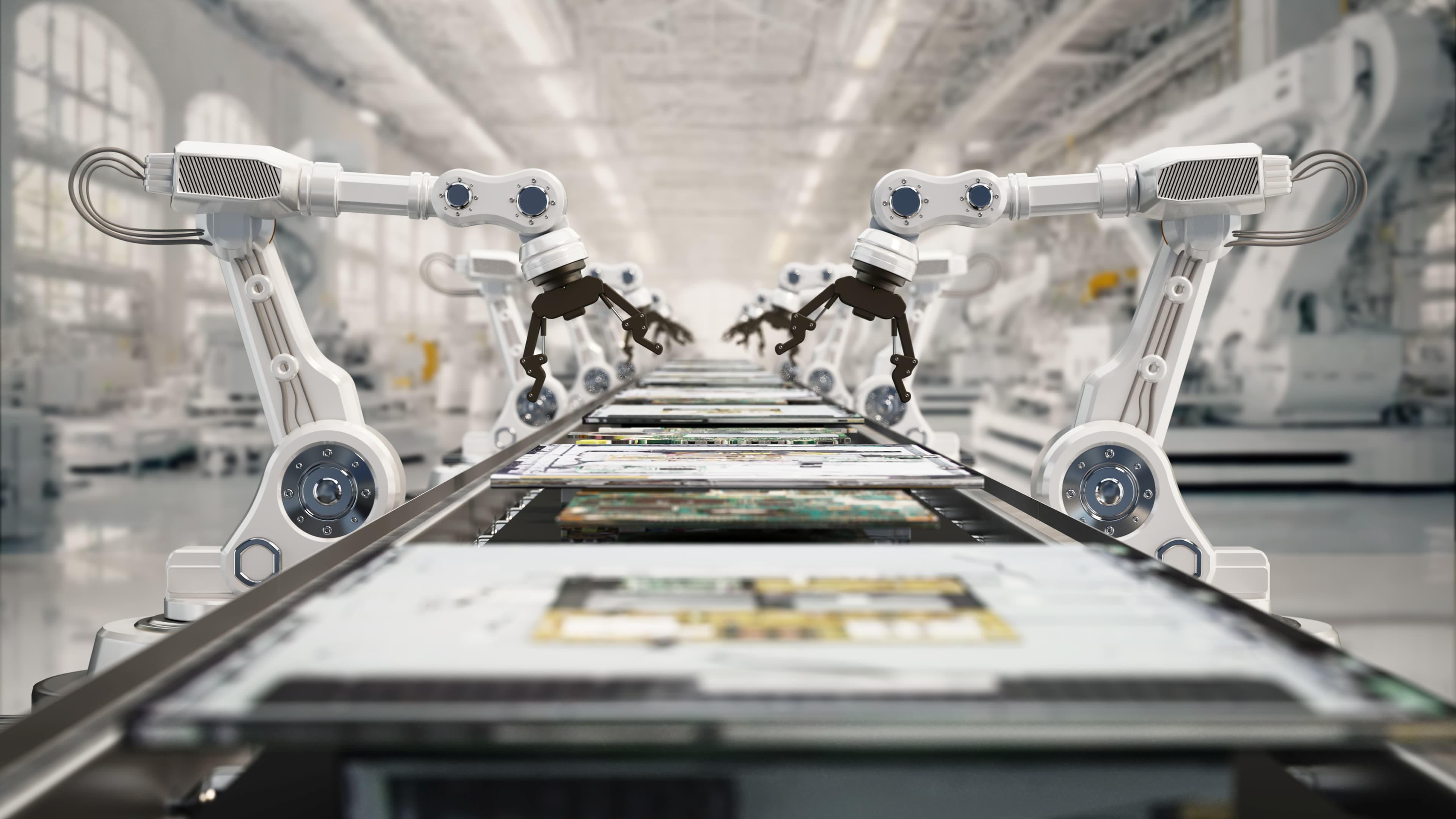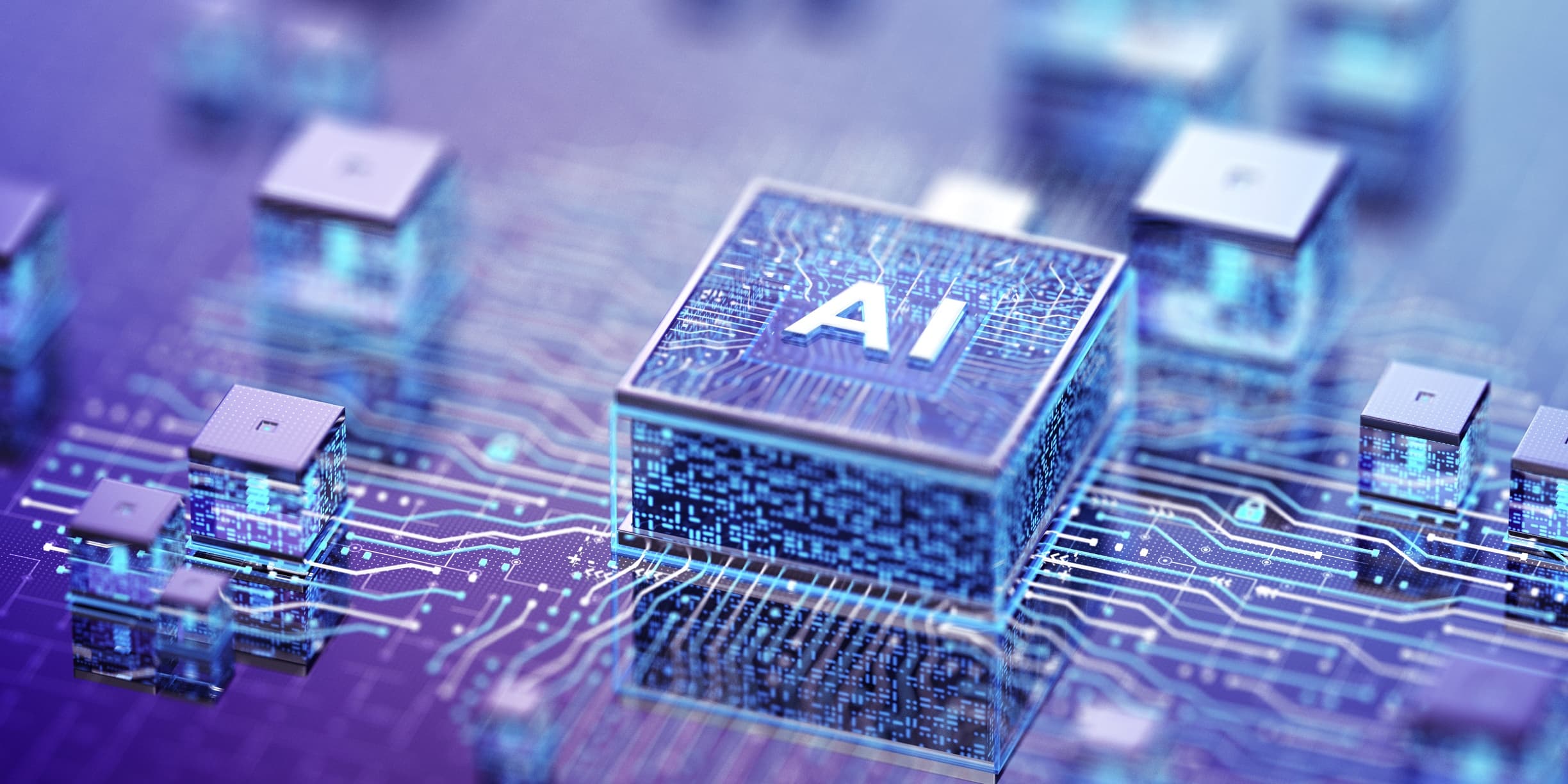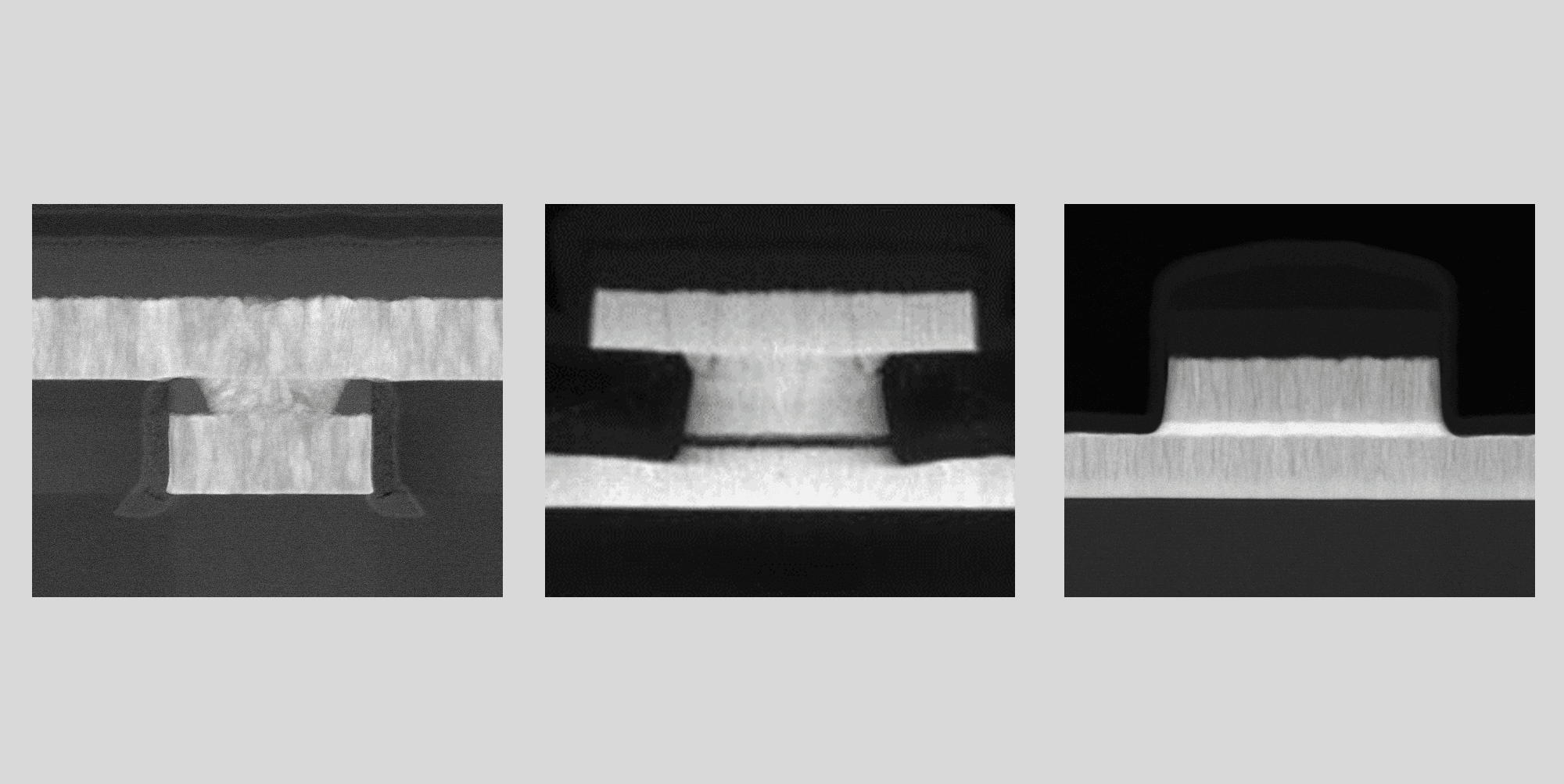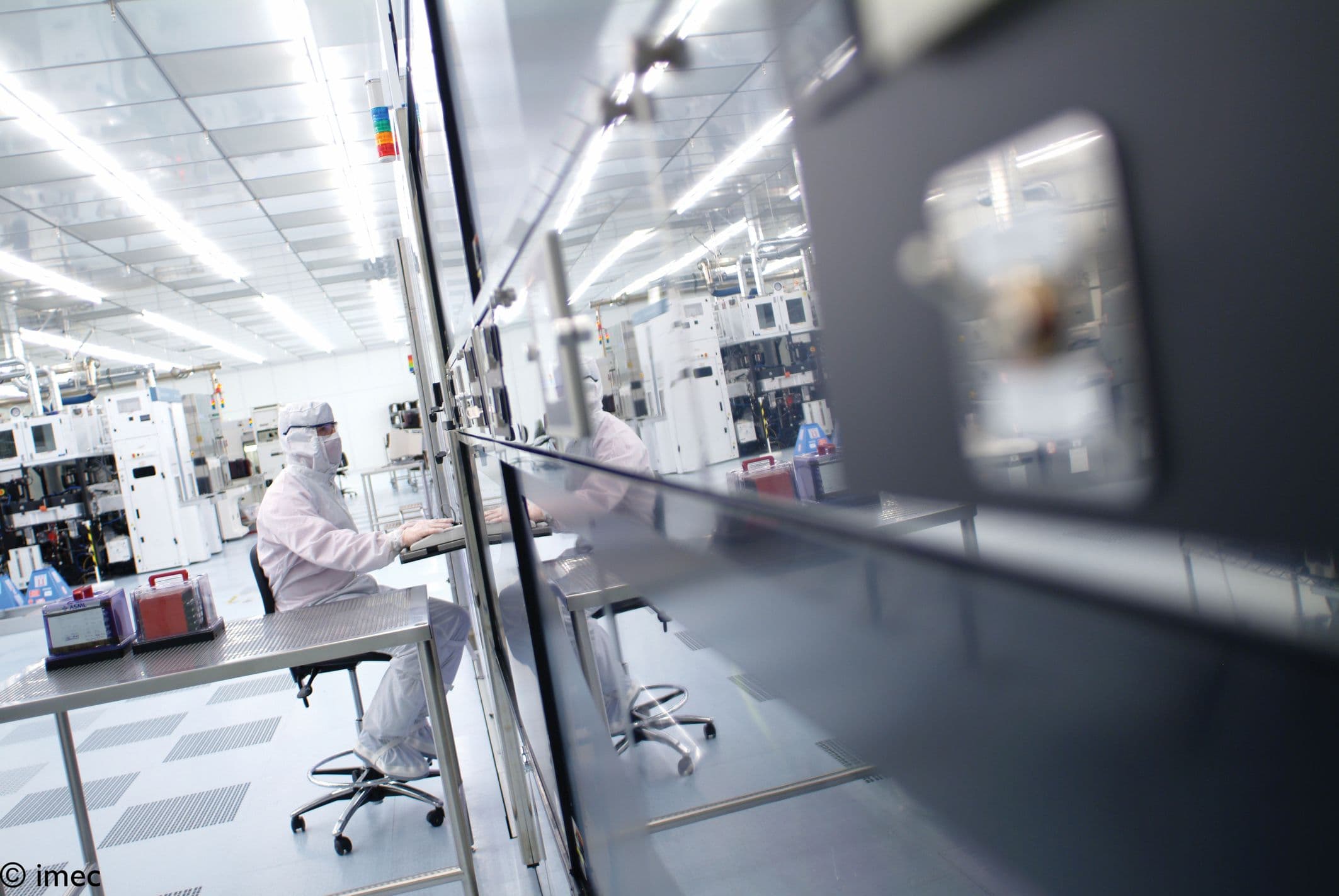History unfolds daily, only revealing the true impact of events as time passes. 2023 stands distinct, though. This year undeniably marked the start of a new era as artificial intelligence suddenly became available at everyone’s fingertips.
A groundbreaking technology takes root
Artificial intelligence isn't a new concept. The idea of implanting consciousness into non-living matter has been discussed for centuries. Still, it was only during the 1950s that AI’s scientific journey really kicked off.
“With the introduction of generative AI, artificial intelligence has suddenly become accessible at everyone’s fingertips. This unlocks extraordinary opportunities.”
Initially, AI was off to a difficult start: a lack of computers capable of sufficient computations significantly hindered the technology’s development. It wasn't until the intervention of chip tech pioneers such as Gordon Moore that AI received the necessary boost to advance.
Today, this pioneering spirit lives on in the research conducted by imec, where the groundwork is laid for the creation of ever more tiny, powerful, yet cost- and energy-efficient microchips.
One example is our research into the evolution of CMOS transistor architectures, which face unprecedented scaling and cost challenges. Imec is at the forefront of transistor scaling, helping the industry move from FinFETs, and vertically stacked nanosheets, to forksheet devices, and (atomic) CFETs. It is an effort that culminates today in an entirely new paradigm, CMOS 2.0, driven by system-technology co-optimization (STCO). STCO involves system designers working closely with technology teams to identify the best options, rather than relying on off-the-shelf scaling options. This translates into tailor-made chips that are built by intelligently partitioning their various functions across multiple 3D stacked layers.
The use of backside power delivery networks is one of the first signs that we are entering this new CMOS 2.0 era. All of the major foundries have announced that they are moving to integrated chips with wafer-backside power distribution systems – which is becoming increasingly important for the realization of high-performance and energy-efficient electronic devices. Access to wafer backside processing opens up opportunities to integrate devices such as power switches, migrate global clock routing from the front side, or add new system functionality.
Another example is our work on new, post-Moore computing paradigms – such as superconducting or cryogenic computing, which exploits the near-zero electrical resistance of materials at ultra-low temperatures to achieve energy efficiency 200 times better than today's processors while enabling higher compute density.
And yet another frontier R&D topic is the development of mature quantum systems with better, lower-variability and higher-fidelity qubits that are easier to control and interface with. At imec, we are developing both silicon and superconducting qubits and control systems, building on the tremendous precision and accuracy enabled by advanced semiconductor tooling to bring qubits from the lab to the fab. One of the breakthroughs we realized in 2023 was the demonstration of an ultra-low power cryo-CMOS multiplexer that can operate at a record-low temperature of 10mK.
In other words, technology experts are constantly advancing the much-needed building blocks to create the next generations of high-performance computing applications. Efforts that, in 2023, resulted in the inception of generative AI, embedded in popular applications such as ChatGPT, Microsoft Copilot, and DALL-E.
This development marks a profound revolution. Until recently, AI was used discreetly to enable personalized web ads, Netflix recommendations, or virtual assistants like Siri and Alexa. But with the advent of generative AI, the potential of artificial intelligence is now literally within everyone’s reach – opening up extraordinary possibilities. For example, text, images, and other content can now be created with a single command prompt. Or consider the impact of AI on road safety as cars are equipped with AI-based driver assistance systems. And in healthcare, radiologists are already turning to AI to help them interpret complex scans.
At the same time, however, concerns have arisen about privacy, the inherent bias of AI systems, and the deceptive potential of deepfakes. Not to mention the strike by Hollywood screenwriters who are furious that AI is breaking copyright rules, and worried that it could even take over their jobs.
Addressing people's doubts and uncertainties
Addressing these concerns will be critical if we want everyone to jump on the AI bandwagon and benefit from the opportunities it presents. Fortunately, progress is being made in developing regulatory frameworks to mitigate the risks associated with AI.
Think of initiatives such as the European Artificial Intelligence Act, for which the groundwork was laid in 2023, and which aims to establish the world’s first comprehensive AI-focused legislative framework. Through the AI Act, the European Commission intends to ensure AI systems used in the EU are safe, transparent, traceable, non-discriminatory, and environmentally sustainable. It also calls for human oversight to prevent adverse outcomes.
As European member states move toward ratifying the European AI Act, the U.S. is also considering the creation of AI regulation. Several AI bills have moved through committees, and the Biden administration plans to issue an executive order to address AI risks under existing law. In addition, efforts are underway to promote the responsible development and deployment of AI, with several technology companies making voluntary commitments to AI safety and transparency.
And, of course, local initiatives can be highly valuable too – such as the agreements on the use of generative AI that we have seen emerge in schools and workplaces in the past few months.
Yet, amidst these concerns, it is essential not to overlook the incredible opportunities AI presents!
The swift integration of AI into every aspect of our lives is truly remarkable
To illustrate how deeply AI is embedded in our lives, we have already mentioned the automotive industry, where artificial intelligence has become an essential component, enabling cars with advanced safety features such as lane departure warning, pedestrian detection, and collision avoidance. In fact, to meet the stringent standards of the automotive industry, cars equipped with AI have become a must-have. This is where imec research programs such as SensAI, which focuses on the development of advanced sensor fusion systems, are trying to raise the bar.
AI-driven advancements are transforming healthcare too, accelerating complex diagnoses, revolutionizing personalized therapy development, optimizing new drug efficacy testing, and laying the groundwork for future proteomics research. Proteomics holds the key to personalized medicine by unraveling intricate protein structures, functions, and interactions, promising a deeper understanding of organismal structure and function compared to current genomics practices.
And AI's impact extends to preventive healthcare too. Recently, a Belgian hospital collaborated with imec researchers to develop algorithms predicting acute kidney failure's transition into a chronic condition. Early intervention based on such predictions promises to alleviate considerable suffering.
In essence, AI's rapid integration into virtually every aspect of our lives has been nothing short of phenomenal. The year 2023 served as a pivotal moment in this evolution, marked by the breakthrough of generative AI.
No longer exclusive to a select few
The introduction of applications such as ChatGPT and DALL-E dispels the notion that (generative) AI is an exclusive technology, limited to a fortunate minority. On the contrary, it is commonly accessible, and in some instances even available at no cost.
Unsurprisingly, the past year witnessed an unprecedented surge in adoption rates for applications such as ChatGPT. Within a mere two months of its launch, OpenAI's chatbot amassed over 100 million active users, marking it as the fastest-growing consumer app in history.
So, it's safe to state that in 2023 we have reached the point where AI applications have become as indispensable as an internet connection for many.
The power to mold AI lies with us
In summary, AI holds the potential to reshape society in unforeseen ways. 2023 will be remembered as the year it became universally accessible, presenting a spectrum of opportunities and sensitivities.
Yet, navigating between a technology’s advantages and drawbacks represents a natural evolution too. From mastering fire-making thousands of years ago to introducing generative AI today: every breakthrough entails a learning curve.
“AI will reshape society in ways we cannot imagine. Still, we should not dismiss a technology, simply because we do not grasp its full implications yet.”
But, in the end, what remains crucial is not to dismiss a technology due to a lack of understanding or insights into its implications. After all, the power to mold technologies – including AI – lies with all of us.

Luc Van den hove is President and CEO of imec since July 1, 2009. Before he was executive vice president and chief operating officer. He joined imec in 1984, starting his research career in the field of silicide and interconnect technologies. In 1988, he became manager of imec’s micro-patterning group (lithography, dry etching); in 1996, department director of unit process step R&D; and in 1998, vice president of the silicon process and device technology division. In January 2007, he was appointed as imec's EVP & COO. Luc Van den hove received his PhD in electrical engineering from the KU Leuven, Belgium.
In 2023, he was honored with the Robert N. Noyce medal for his leadership in creating a worldwide research ecosystem in nanoelectronics technology with applications ranging from high-performance computing to health.
In 2025, he was awarded the honorary distinction from the Flemish Community in recognition of his impressive role in strengthening Flanders as a leading innovative region.
He has authored or co-authored more than 200 publications and conference contributions.
Starting in April 2026, he will take on a new role as Chair of imec’s Board of Directors.
Published on:
20 December 2023














